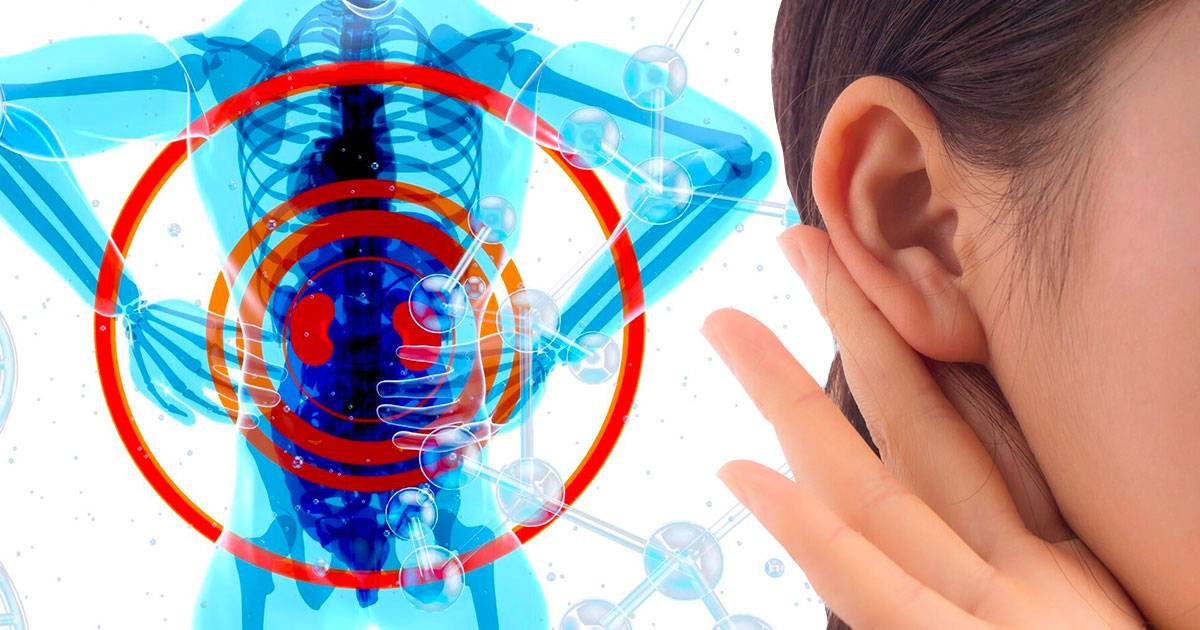The Surprising Connection of How Your Kidneys May Impact Your Ear Health

Did you know that over 850 million people around the world are coping with kidney disease? That’s a huge number, and it really puts into perspective how common this issue is. Kidney disease, or chronic kidney disease (CKD), as it’s officially called, sneaks up on people slowly, damaging the kidneys over time. This can happen for a variety of reasons, like diabetes, high blood pressure, or even certain autoimmune diseases. It’s a complex issue with many different causes.
Having kidney disease doesn’t just affect your kidneys. It can lead to a whole bunch of other health problems, including heart issues, anemia, weak bones, and even making you more likely to get infections. It shows how everything in our body is connected—when one part starts having trouble, it can set off a chain reaction affecting other parts too.
One of the tricky things about kidney disease is that you might not notice anything’s wrong until the disease has progressed quite a bit. Some signs to watch out for include feeling tired all the time, swelling in your legs and ankles, having trouble focusing, not feeling hungry, and seeing changes in how often you need to pee. And here’s something you might find surprising – there’s research that suggests problems with your kidneys could also impact your hearing.
How Kidney Disease and Ear Trouble Might Be Connected
Did you know that having kidney disease might affect your ears too? Researchers have been digging into how chronic kidney disease (CKD) – that’s when your kidneys gradually stop working as well as they should—can lead to problems with your ears, including tinnitus. Tinnitus is that annoying ringing or buzzing sound in your ears that doesn’t come from any outside noise.
A study that caught a lot of attention was published in PLOS ONE. It found that people with chronic kidney disease seem to have a higher chance of getting tinnitus. This is important because it means doctors and patients with CKD need to keep an eye out for hearing problems too.
So, why does this happen? Well, the exact reasons aren’t crystal clear yet. But it could be because when your kidneys aren’t filtering out toxins from your body like they should, these toxins might end up damaging nerves, including those in your ears. Plus, kidney disease can lead to other health issues like high blood pressure, which also isn’t great for your ears.
Another interesting piece of research looked into how CKD affects not just hearing but also balance. This shows just how deep the connection between our kidneys and our ears might go.
Treating Hearing Loss and Renal Failure Proactively
When it comes to managing the dual challenge of hearing loss and renal failure due to kidney issues, being proactive is key. Both conditions, while serious, offer opportunities for treatment and management that can significantly improve quality of life.
Early Detection and Regular Monitoring
First and foremost, early detection is essential. For kidney disease, this means regular check-ups that include blood and urine tests to monitor kidney function. Early detection can be used to slow the progression of kidney disease through dietary, pharmaceutical, and lifestyle modifications.
For hearing loss, regular hearing tests, especially if you’re at risk due to CKD, can catch problems early on. The use of cochlear implants, hearing aids, or other assistive technology to enhance communication and hearing is made possible by early detection.
Lifestyle Modifications
Certain lifestyle changes can improve kidney health as well as hearing. Kidney function and general health are supported by a nutritious diet high in fruits, vegetables, and whole grains and low in processed foods and sodium. In addition to helping control CKD, regular exercise, eating a healthy diet, and quitting smoking lower the chance of developing diseases like high blood pressure that can worsen hearing loss.
Medical Management
Blood pressure and blood sugar control are essential for people with CKD. Prescription drugs may be used to treat these illnesses and prevent kidney damage. Dialysis or a kidney transplant may be required in cases of severe kidney failure.
Treatment for hearing loss may include the use of increasingly advanced hearing aids that provide clearer sound and easier integration into daily life. For more severe cases, cochlear implants or bone-anchored hearing systems might be options.
Proactive Approach
Yes, a proactive approach is possible and highly recommended. For kidney disease, this means staying on top of your health checks and following your doctor’s advice to manage the condition and slow its progression. For hearing loss, it involves regular hearing screenings and taking action when a problem is identified.
Additionally helpful in assisting people in overcoming the difficulties associated with kidney disease and hearing loss are support groups and counseling. Patients and their families are better able to participate actively in their care when they are informed about both conditions.
The Vital Link Between Kidney and Hearing Health
The bottom line is straightforward yet powerful—if you’re navigating the challenges of CKD, extending your vigilance to include your hearing health is not just advisable; it’s essential. This isn’t merely about managing symptoms or preventing further health issues. It involves adopting a holistic perspective on wellness that recognizes the intricate interactions between various facets of our health.
Proactively addressing hearing health alongside CKD can enhance quality of life, improve communication, and even potentially slow down the progression of both conditions through early detection and intervention. It all comes down to exercising self-control, remaining knowledgeable, and making decisions that put your general wellbeing first.
So, let this be a call to action: Schedule those check-ups, both for your kidneys and your ears. Adopt those healthy lifestyle changes that support your entire body. And remember, in the vast ecosystem of our health, every part matters. By caring for your kidneys and paying attention to your hearing, you’re taking a significant step toward a fuller, more vibrant life.
Here’s to your health—holistically, proactively, and passionately.
